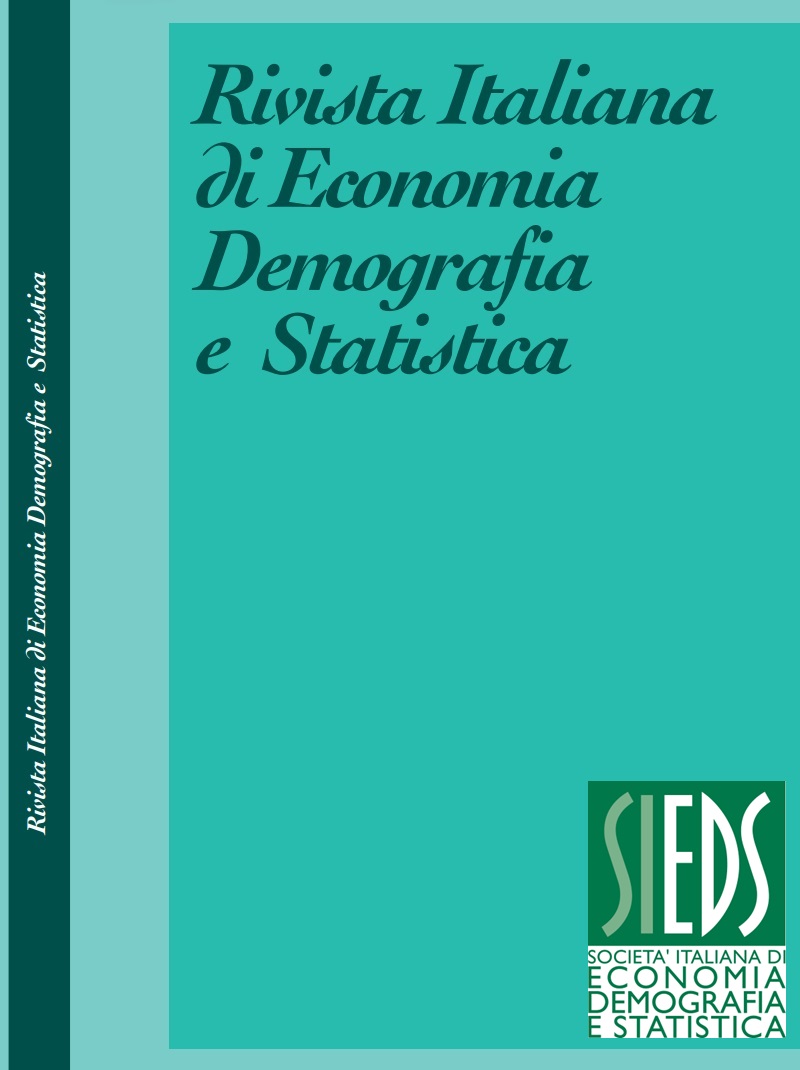Frailty in Europe: the role of social networks and activity participation
DOI:
https://doi.org/10.71014/sieds.v78i2.265Abstract
Frailty represents a condition of increased vulnerability among elderly people due to losses in one or more domains of the human functioning. Population aging and the consequential increase in the proportion of elderly, are making frailty a public health priority, especially in the European Union, where the proportion of elderly is projected to increase significantly in the next 30 years. Despite the numerous studies on frailty and its determinants, scholarly interest towards the role of the social determinants, specifically, is recent, with most studies focusing on the Asian context. Thus, evidence on the social determinants of frailty in the European context is scarce. In light of this, the study we propose aims at evaluating the role of social connectedness and activity participation on frailty among the elderly in Europe, using suitable regression techniques. We employ data from the Survey on Health, Aging and Retirement in Europe (SHARE), providing information on the health, socioeconomic conditions and social life of community-dwelling individuals aged 50 or older in European countries. Specifically, we study how social networks (SN) and activity participation (AP) in wave 4 affect frailty of people aged 60 and over in wave 5 by gender, separately. We measure SN and AP via two indexes proposed in the literature. To measure frailty, we rely on Romero-Ortuno et al.’s SHARE Frailty Instrument, providing pre-calculated, population-representative and gender-specific frailty indexes. Our findings hint at the existence of a substantial association between both social connectedness and activity participation and frailty. However, this association appears to change across genders. When comparing the role of social connectedness and activity participation, a more prominent association with activity participation emerges.
Downloads
Published
Issue
Section
License
Copyright (c) 2024 Rossella Miglio, Chiara Puglisi, Rosella Rettaroli, Giulia Roli, Francesco Scalone

This work is licensed under a Creative Commons Attribution 4.0 International License.



